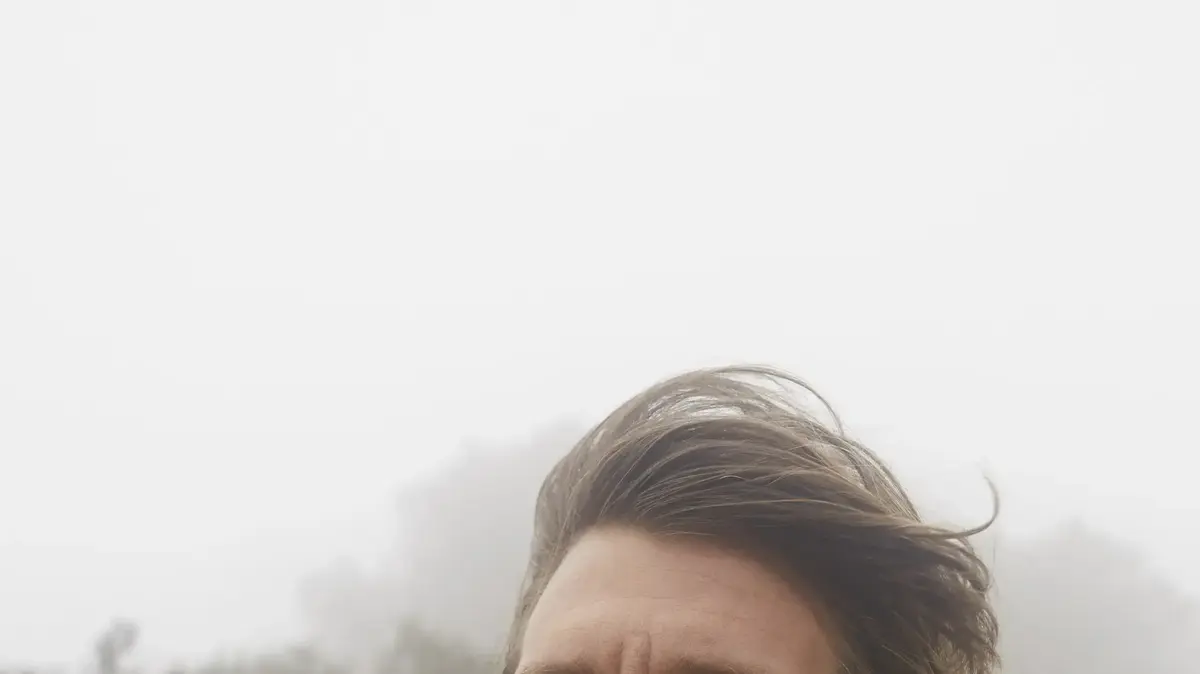Israel, vomiting and "Seinfeld": the director of "Triangle of Sadness" in a happy interview
Ruben Ostland strengthened his position as one of the leading directors today thanks to "Triangle of Sorrows", one of the most talked about films of the year.
A special interview on the occasion of his departure in Israel
Avner Shavit
07/10/2022
Friday, 07 October 2022, 00:10 Updated: 00:16
Share on Facebook
Share on WhatsApp
Share on Twitter
Share by email
Share in general
Comments
Comments
The trailer for the movie "Triangle of Sorrows" (Lev Cinema)
Last May, Ruben Ostland joined a very exclusive club: directors who have twice won the Palme d'Or, the main prize at the Cannes Film Festival and one of the most prestigious in the world of cinema.
The first time was five years ago, on "The Square", a masterpiece and one of the biggest films of the previous decade.
The second time was on "Triangle of Sadness", which was released here at the end of the week.
The film lasts about two and a half hours and is divided into three episodes.
The first, which looks like a situation from "Seinfeld", shows a model and a model-influencer who have been dating for a long time, and have an argument about who should pay the bill at a restaurant.
The second is reminiscent of The White Lotus, and takes these two characters on a journey that spirals out of control aboard a cruise ship.
Most of the people who spend time there are oligarchs and their families, and the rabbi is an alcoholic played by Woody Harrelson.
The third episode is the most extreme and surprising of all, and reminds of "Baal Zevov".
We won't find out more than that.
The first international screening of the film was at the Cannes Film Festival, and it was one of the amazing screenings at the event in recent years.
The audience almost collapses the ceiling with laughter and applause.
The second international screening was at the Jerusalem Festival in mid-July, and there the audience reacted with hysteria and ecstasy.
Why did the Swedish director choose the capital city as the first stop of the film after the Riviera?
"My two favorite festivals in the world are Sarajevo and Jerusalem. These are cities that have conflict, and conflict is something that provokes discussion," he explains in a special interview with Walla Tarbut!
"I like to provoke discussions and like to participate in them. Controversy is a good thing, which should not be avoided - neither in life nor in cinema. What is the point of having a conversation if everyone is saying the same thing?"
Won the Palme d'Or for the second time in five years.
Ruben Ostland celebrates at the Cannes Film Festival (Photo: GettyImages, Gareth Catharmol)
Was there anything different in the reactions in Cannes and Jerusalem?
"Really? No. At all these festivals, the audience is always left-wing, which is a problem of course, because they have the same point of view."
But the left also criticizes you.
"True, in my films I present both the upper class and the lower class. For example, in 'Triangle of Sorrows' I present both the wealthy clients of the cruise ship and the blue-collar workers who serve them. I criticize both sides, and there are onlookers The left who don't like it. They look at the world with a sentimental approach - the poor are 'good' and 'authentic', and the rich are egoistic and superficial. My approach is Marxist, and therefore more analytical and complex."
Can cinema be Marxist?
"Yes, of course, and this is my approach in all my films. Nowadays there is a widespread error about Marxism - it is only thought of in the context of economics, but Marxism also developed the materialistic approach that I take, which tries to understand our society and how people behave in the social space. This is what I I do in every one of my films, and in fact in every scene in every one of my films."
More in Walla!
The Netflix movie about Marilyn Monroe is an ongoing nightmare, repulsive and infuriating
To the full article
Analyzing our company with Izmal.
From "Triangle of Sorrows" (Photo: Cannes Film Festival)
The director inherited his worldview from his parents, both teachers and activists from the left-radical side of the political map.
At the age of four, his parents separated.
His brother, who is eight years older than him, left with his father, and the filmmaker stayed with his mother, who to this day defines herself as a communist, and also sins in art - she paints.
Didn't feel like rebelling against your parents?
Become a neoliberal?
"The truth is that this is what my brother did. I define him as a right-wing conservative, although he gets annoyed that I do that. He defines himself differently, but in any case there is no doubt that he goes against the left. He did it before me, so I was no longer We need to take this place."
You arrived in Jerusalem with your baby.
May I ask what kind of father you are?
"I became a father for the first time twenty years ago, and now I have another child. Today, I have much more patience than the first time. I like to look at my baby and see how he discovers the world. It's like in 'Terminator', when the robot looks in amazement at what is happening to his body. I also like going around places like this with a child. It helps you connect with other people, and it neutralizes all the bullshit. Everyone is less stressed when there's a baby around."
More in Walla!
Used condoms and monkey-men: an interview with the director of "The Square", the wildest film nominated for an Oscar this year
To the full article
All because of mom.
Ruben Ostland (Photo: GettyImages, Francois Durand)
Ostland's film career began in an unusual way: when he was skiing in the French Alps.
He started directing short films about other surfers and extreme sports, and from there came his fondness for extreme spectacles, the kind that populate his works.
From there also comes his tendency to place the camera and look from a distance and for a long time at a group of people in an unusual situation.
After this experience, Östland studied cinema in Sweden, and began directing feature films.
His mother's influence is already evident in his second film, "Involuntary", in which he presents an experiment she taught him - Ash's conformity test, which proves that people will usually imitate the answers of those who answered before them, even if they are wrong.
Ostland became a regular at Cannes starting with his third film, Play, and broke big with his fourth film, Force Majeure, his first to receive commercial distribution in Israel, and was also the basis for a Hollywood remake starring Will Ferrell and Julia Louis-Dreyfus.
Then came "The Square" and "The Triangle of Sadness", and he is already working on a new film - which will take place on a plane.
Why do you like vehicles so much?
"Force Superior" ended on a bus, "Triangle of Sorrows" takes place partly on a ship, and your next movie is up in the air.
"I'll tell you what interests me about these means of transportation: we put our lives in someone else's hands, and we have to trust him. What happens if our bus driver is crazy? And when will we stand up and rebel against him? It's also an interesting question about our relationship to authority. Specifically regarding an airplane, I think he is a microcosm for our society: the pilot represents the authority, the different departments the class differences."
Mr. world.
Ruben Ostland at the New York festival (Photo: GettyImages, Dominic Bindel)
"I worked in fashion shoots myself, and there were stylists who worked alongside me and commented on my appearance. It was humorous, and I didn't feel threatened. I don't have a problem with people writing that I'm handsome, because I don't think I'm looked at as a sex symbol and nothing else. I'm appreciated for other things as well."
The release of the film was accompanied by a terrible tragedy: Charlby Dean, who stars in it as the model-influencer, passed away at the age of 32 following a sudden illness about a month and a half ago.
The interview with Ostland took place before the death, so of course we could not refer to it.
In a post on his Instagram, the director wrote "Charleby's death is a shock and a tragedy. It was an honor to know her and work with her. The thought that she won't be by our side in the future makes me very sad."
The model, the model's partner, is played by Harris Dickinson, a rising star who can now also be seen in the excellent "See Them Running", played by Richard Attenborough.
He bursts onto the screen in the first seconds of the "Triangle of Sadness", wearing only underwear.
When you watch this scene, you will also understand where the movie got its name from.
Most movies, certainly these days, deal with the objectification of women.
Why was it important for you to deal with the objectification of men, already in the first scene?
"Because this is something that was missing in the discourse of the MeToo. Models also have to deal with the fact that their sexuality is a currency. Often, fashion photographers harass them and even sexually blackmail them. They offer them sex in exchange for career advancement, and often it really works that way."
"If you ask children in the fifth grade what they would prefer - to be smart or to be beautiful, almost all of them answer 'to be beautiful'. The importance that external appearance has nowadays is a disturbing thing. When you look at Swedish newspapers, almost all opinion columnists are photographed as a sex object, and what's the connection Between how they look and their opinions or their writing?".
I have to share with you.
A French colleague, a woman, tweeted at the Cannes Film Festival "Roben Ostland is really hot".
When I uploaded a picture of you on Facebook, a male colleague wrote "Here's a reminder that there are still handsome directors".
how do you feel about that
"I worked in fashion shoots myself, and there were stylists who worked alongside me and commented on my appearance. It was humorous, and I didn't feel threatened. I don't have a problem with people writing that I'm handsome, because I don't think I'm looked at as a sex symbol and nothing else. I'm appreciated for other things as well." .
This time the model is the sexual object.
From "Triangle of Sorrows" (Photo: Cannes Film Festival)
"I found out that male models earn only a quarter of what female models earn, so I was interested in talking about this gap. If the woman earns more, why should the man pay?"
Where did the idea come from for one of the first scenes, where the model and the model argue about who should pay in the restaurant?
"Two things. First of all, I found out that male models earn only a quarter of what female models earn, so I was interested in talking about this gap. If the woman earns more, why does the man have to pay?
"Secondly, this is based on a real argument I had with my partner my current
In fact, this happened during our stay at a previous edition of the Cannes Film Festival.
She comes from a patriarchal home, where the father always pays for everything.
We've been dating for a few months now, and I'm sick of it.
I'm past the stage where I have to impress her, and I'm not her sugar daddy, so why don't we split the bill?" Would you
agree with me that this situation could have fit into an episode of "Seinfeld"?
"I'm sure that 'Seinfeld' had an effect on me, as it did on anyone who lived during the time it aired. Actually, I met Larry David twice. I sat with him and his writers at dinner. I liked the way they worked. It was hard to tell if they were eating, or work, but in any case the dialogue was infringing. They were constantly looking for content from their lives, which is also what I do. I also like Larry David's approach in 'Seinfeld' and 'Calm Down': he looks for dilemmas, where the two options are non-trivial, That's also what I'm trying to do."
"Higher Power" also reminded me of an episode of "Seinfeld".
The man there runs away during an avalanche and abandons his family, in a similar way to what George does in the episode "The Fire".
Then, ironically, your movie was made into an American adaptation with Julia Louis-Dreyfus who starred in Seinfeld.
I won't ask you what you think of this remake, because it was obviously horrible.
"(Laughs and laughs) Listen, they did what they wanted to do, I wasn't involved. I was happy that they wanted to do an adaptation of it. For me, it's like putting up different versions of the same play."
Who should pay the bill - the man or the woman?
From "The Triangle of Sadness" (Photo: Lev Cinema)
"I have a story for you that I haven't told much, and I'm not even sure I'm allowed to tell it, but I did. I wanted to use 'Killing in the Name' by Rage Against the Machine, but they wouldn't let me"
Throughout the interview, Ostland does not stop smiling and laughing.
The audience also laughs constantly in the "Triangle of Sadness", including in situations that are not necessarily comical by definition.
For example, when the passengers on the ship start vomiting - and don't stop.
"'Triangle of Sorrows' is the film I've seen the most times in my life, because I spent a lot of time with it in the editing room. I was already used to vomiting, and I didn't think they were a sensation or a provocation," he says.
"I was surprised that the audience reacts to them with such emotions. I don't understand why people are so moved by vomiting. It's a natural thing - it's the body's way of cleaning itself. We're not used to vomiting on the screen, so we react to it much more dramatically than to violence. Violence is Something much more shocking, but we've already gotten used to seeing her on the screen."
Speaking of violence, there is a scene where the human characters do something very violent to a donkey.
Why is it serious?
"Truthfully, at first the plan was to use a large lizard, but a donkey is more comical because it is so helpless. I wanted an animal that was captured by people. I also wanted a relatively large animal, which is not easy to hurt badly - it is something that requires effort, and takes time. No I wanted the human injury to the animal to be casual. It was important to me to describe it as something that requires commitment and thought, so that the responsibility for the act and awareness of it would be greater."
The music in your films is always significant, as is the soundtrack that accompanies all these events this time.
How did you design it?
"Honestly, I have a story for you that I haven't told much, and I'm not even sure I'm allowed to tell it, but I did. I wanted to use 'Killing in the Name' by Rage Against the Machine. It's a song that you listen to and immediately want to rebel and make a revolution, so He was perfect for the film. I wrote and shot the part of the vomiting on the ship to the beat of the song - and built on it, but then the band didn't get back to us, and a week before the deadline it became clear that they didn't agree to us using it. I don't understand why, it wasn't a question of money - We had a lot of money for them. And the most annoying thing: later I found out that they allowed the new movie in the 'Matrix' series to use the song!"
Great game displays.
From "Triangle of Sorrows" (Photo: Cannes Film Festival)
Another memorable scene in the movie is when the rich arrive.
One of them complains to the staff about a problem that doesn't exist.
One of the innocent workers tries to correct her, but then her boss immediately freaks out.
The rich customer is always right, and they should not be corrected even when they confuse the mind.
"That's how it is on these ships. The centurion has an opinion. If the oligarch says something - he's right. If he asks for a unicorn, the workers on the ship should answer him, 'With pleasure, we'll try to arrange a unicorn for you.'"
Is there an Israeli director you admire?
"Nadav Lapid. He is doing something special. It was interesting to meet him. He looks tough, but he is soft inside."
He started his career as a football journalist.
You love football?
"Yes, I'm a Gothenburg fan."
Have you thought about talking about football from a Marxist point of view?
Talk about the terrible corruption in the industry?
"The truth is, initially I wrote a dialogue about soccer between the captain and one of the passengers. The passenger says, 'Let's talk about soccer,' and the captain says, 'To talk about 22 billionaires chasing a ball and all for the gambling industry? I'm not interested.' Extend the dialogue and not slow down the film. It's important to maintain the pace and keep the audience on their toes."
Loves football, Marx and Nadav Lapid.
Ruben Ostland (Photo: Cannes Film Festival)
As someone who directs long but rhythmic and fascinating films, what is the formula to keep the audience focused for more than two hours?
"You need turning points. The length of the film is not important. What is important is that you plant more and more turning points along the way. You have to build situations, and then turn the bowl over and over again."
Would you agree with me that if we were to search for a title for all your films, 'The Human Comedy' would be a good title?
"I agree. It's an excellent name."
culture
Theater
film review
Tags
Most of Ostland
Cannes Film Festival
The triangle of sadness
Nadav Lapid
Woody Harrelson








/cloudfront-eu-central-1.images.arcpublishing.com/prisa/P745MWQBCNBN7AWD6U4PGHDA4I.jpg)
